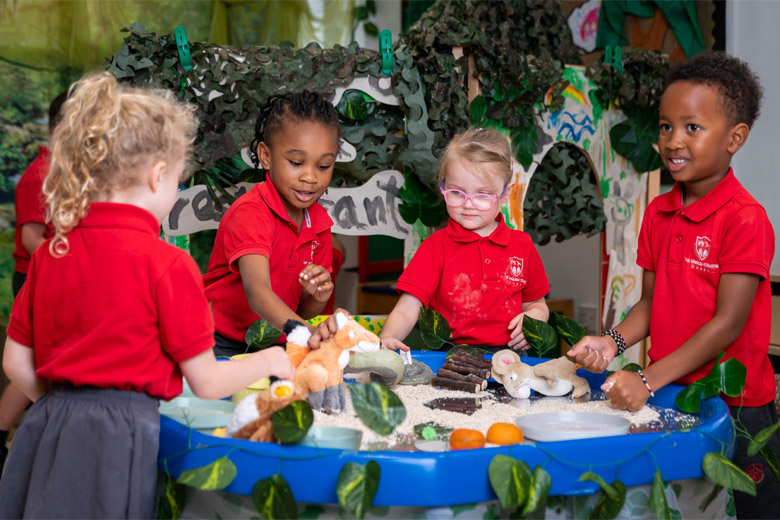The English College, one of the leading British curriculum schools in the region, has recently appointed Ms Carmella Jodrell as the new Head of Primary. Carmella will begin her new role in August 2023, and brings a wealth of experience and knowledge from her work in schools across the world. The English College is passionate about the holistic growth of its students and strives to encourage the development of their individual passions. We spoke to Carmella about her new role and the best way to inspire and nurture young learners as they begin their education.
EDUAE: You’ve recently taken on the role of Head of Primary at The English College. Congratulations! What are you most excited about in this new role?
Carmella Jodrell: Whenever there’s a move to a new school, the most exciting thing is getting to know the community. I’m looking forward to meeting the children, parents and staff and finding out more about how I can fit into and support an already very successful and happy school.
EDUAE: You’ve worked in schools all over the world. What attracted you to The English College?
CJ: It was the warmth of the school. When I went for my first visit to The English College, I met many lovely senior leaders, teachers and support staff, who were all very happy and welcoming. I felt that it would be a community that aligned with my values and aims as a Head of Primary to create an environment everyone wanted to come to, were supported to flourish in and formed a central, safe community space of excellence. I’ve visited the school many times since then and I’ve never had anything other than a very positive experience. I once sat waiting to meet Mr Ford, the Principal, and many of the secondary students passed by whilst I was there, wishing me a good morning and generally being absolutely delightful. I remember thinking this is a special place – everyone seems happy, confident and polite. Who wouldn’t want to be a part of that?
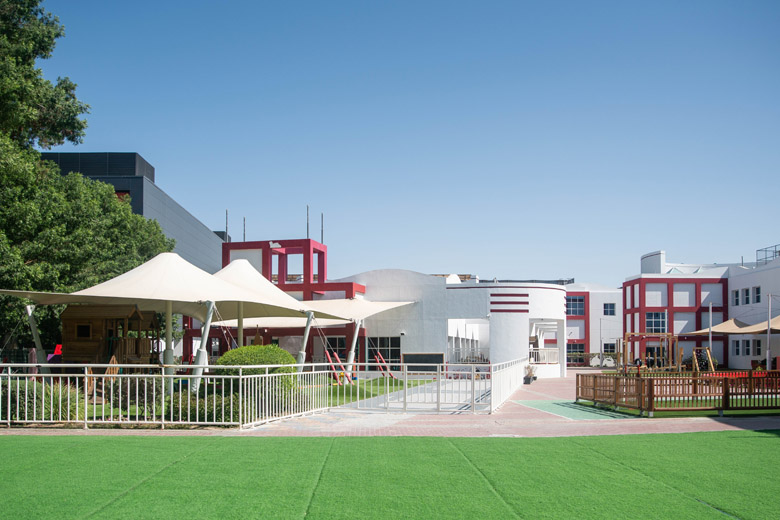
EDUAE: What do you find motivates Foundation and Stage 1 students, and how do you adapt the teaching approach to give them the most rewarding and beneficial experience?
CJ: When I trained as a teacher, there was very little focus on the teaching skills required to support children in their early stages of learning. The priority was on the formal learning of the National Curriculum, which was a new curriculum at the time of my BEd and started from year 1. Since then, I’ve attended a variety of teacher training sessions around early years learning, I’ve taught in the Early Years and have opened a Nursery for children from 6 months to 3 years and an EYFS department from 3-5 years. The Early Years is a part of school provision that I’ve come to love and cherish as the very best foundation for all learners.
The Early Years is a part of school provision that I’ve come to love and cherish as the very best foundation for all learners
The best practice is where teachers manage to spin all plates at once. Sometimes I go into the early years classes and see children singing, dancing, role playing, building and exploring. Other times there is a focus on language and literacy or mathematics skills and this is important too. You can never tell what’s going to take a child’s interest when they are so little, so you do need to offer many different opportunities to engage in learning. Sometimes a child will spend 3 minutes on an activity and other times they will take the entire day to explore something they are interested in. Whatever it is that children are doing, they should be loving their learning experiences, showing high levels of engagement, and be making excellent progress, both socially and academically.
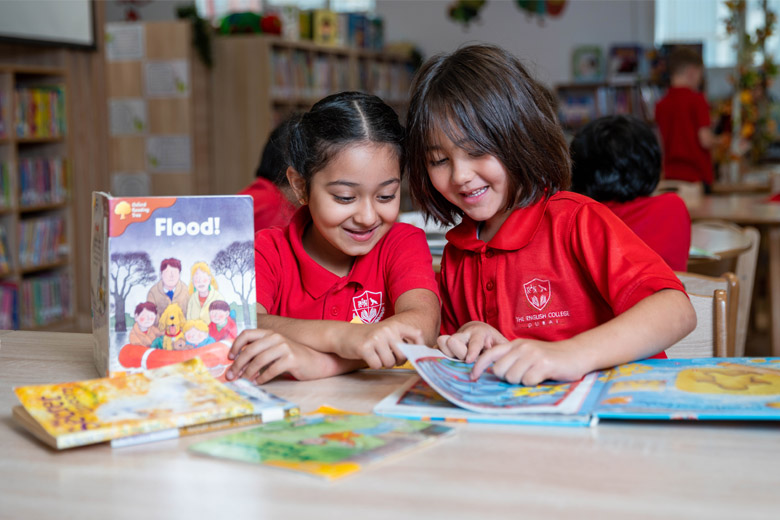
As for what motivates children, well, that has to be the element of fun! Even the most mundane of tasks can be dressed up in a fun way. I was in an FS2 class recently where the children were delighted to tell me that a word had a ‘split digraph’ in it. I actually think that the most skilled
teachers find it very easy to motivate young children, it’s all part of their magic. Making learning real and meaningful goes a very long way, regardless of the age of the learner.
EDUAE: What elements of early years education do you think are fundamental to create a great foundation for learners?
CJ: The UK Foundation Stage curriculum focuses on 7 different aspects of learning from birth to 5, and the best practice of this is when teachers use the environment to support learning. The indoor, outdoor and emotional environments are key considerations when planning for the most creative learning opportunities in FS1 and FS2. Children need a broad and balanced curriculum following their interests and a thematic learning plan to explore the world around them, develop new skills, and incorporate all of this into their play. When it is not balanced, you might find the same children playing with the train tracks all day, every day.
Supporting independence, communication and language, along with well developed social skills, sets children up for success throughout their education. Moving forward, children need to enter into Year 1 with all the above skills and manage the expectations of the more formal skills required as a student. Putting in place a strong phonics, reading and writing programme is key to ensuring children will manage the expectations of Year 1 and 2. At The English College, this programme is Read, Write, Inc. It’s, without a doubt, the best programme I’ve ever used to see rapid progress in reading and writing skills, and it’s great fun for the children too. This programme starts as early as FS1, meaning that children can enter Year 1 with well developed literacy skills, giving them an excellent academic foundation.
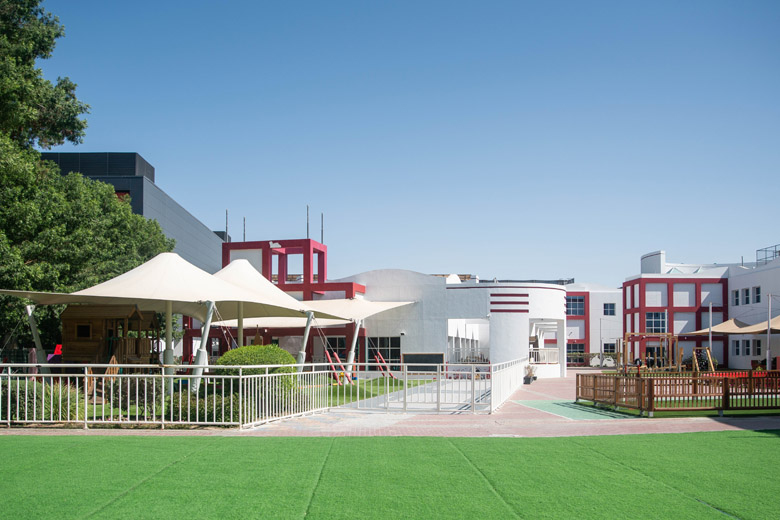
EDUAE: How does The English College create this environment for young learners from the very start of their education?
CJ: The English College supports the most beautiful Early Years Environment – it’s honestly a hidden gem. I would have loved my children to have started schooling in an environment like this. Each classroom is well resourced to support all aspects of learning that we’ve been talking about, along with their own outdoor learning areas of each classroom and a larger playground that supports gross motor skills, with climbing frames and other equipment to support physical development. There’s a delightful focus on storytelling and small world activities for children to role play the stories they hear, using characterisation and setting in a small – but real – way. The teachers and teaching assistants focus on supporting the children to feel safe and confident in their environments and are experts in building self-esteem.
Supporting independence, communication and language, along with well developed social skills, sets children up for success throughout their education
Another special aspect to The English College are the pod areas from Year 1 upwards. These spaces allow for an extended learning experience to support independence, critical thinking and problem solving. During a recent open day visit, I noticed a garden centre set up for the children to play in, which was extremely popular with the visiting guests. There’s so much learning happening when children are given the opportunity to be creative and extend their learning together. As the children get older, these spaces are used to develop other skills, such as circuit making in science, coupled with technology as children build a house out of cardboard boxes and add the circuits to light the house. Brilliant fun.
EDUAE: How do you feel parents can best support their child’s education at home?
CJ: When schools communicate well with parents, the skills children learn can also be supported and developed at home, strengthening children’s understanding and allowing them to share their knowledge with others. All of this fortifies a child’s self-esteem and confidence, ensuring they see
themselves as successful and knowledgeable learners. Daily reading to and with children is a brilliant way to help them develop their language and literacy skills, whilst also teaching them about the world they live in.
I once had the privilege of working with an in-house educational psychologist who used to give talks to parents and teachers. One of my favourite sessions was her support of Special Time. She promoted this as an aspect of parenting that was as important as clothing and feeding a child, but it supported their emotional growth and helped to build a bond between child and parent. It involved giving your child 20 minutes of uninterrupted time 3 times a week (each parent must do this separately). Parent and child play together, but the child must choose the task, it’s never the parent’s choice. I did this regularly with my children when they were young and it’s such great fun. I learned so much from my son about cars during this time and my daughter taught me numerous ways to organise her bedroom! I agree that forming relationships is key; in our busy worlds, we must find time to make our children feel special and connect with them. One certain thing, is that children who come from families where parents are involved in their learning make the best progress at school.
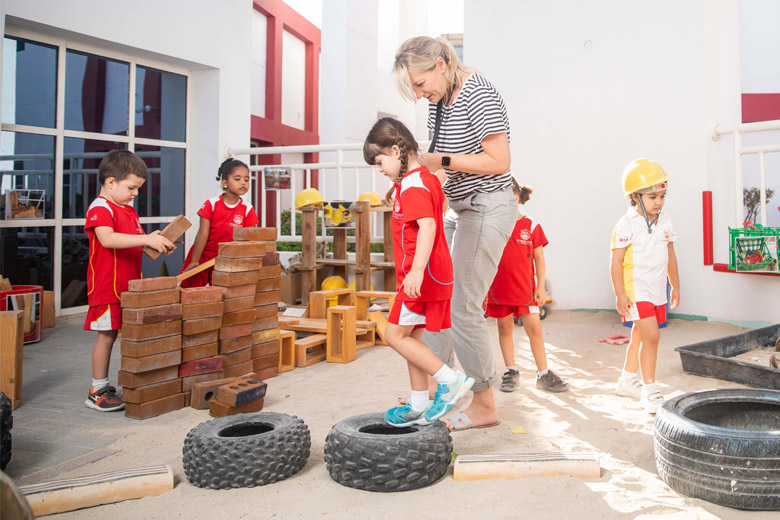
EDUAE: What are your hobbies and what’s your favourite way to spend your downtime?
CJ: I’ve been thinking about this, and I realised that the things I like to do now are largely things that were supported and developed in me as a child. For example, I love to make things out of fabric. My mum was also a good seamstress, but her work was primarily done by hand. When I was 10, she purchased an electric sewing machine, but she was never comfortable with the speed at which it went, so she never used it. Soon after, my father brought home lots of rolls of fabric that he was clearing out of a shop (he was a shop-fitter for a while). So, one quiet Sunday afternoon, I took out the sewing machine and the fabric rolls and made myself a skirt…the beginning of many years of creativity to come. I also like to draw and paint, this was a skill that was ignited by my grandfather, who used to draw ballerinas for my amusement.
I also like to be active, which can be a challenge some days, but walking the family dog gets me out at least twice a day. He’s called Ziggy and was a wellbeing dog at my previous school. Perhaps he’ll make an appearance at The English College in the new academic year, as he’s really wonderful with children. If children speak clearly enough, he’ll do lots of tricks for them – roll over, sit, shake paw, high 5, turn around – he’s very easy to train and will do most tricks if there are treats to be had.
On a really good day, I’ll manage a swim and some yoga, both really help me to relax and unwind. I read every day, whether this is a novel, a new recipe or an article to support my studies. I have to have at least one novel on the go, and I’m part of a book club, so I can’t keep the books going for too long, or I’ll miss the lovely chats we have at the end of each book.
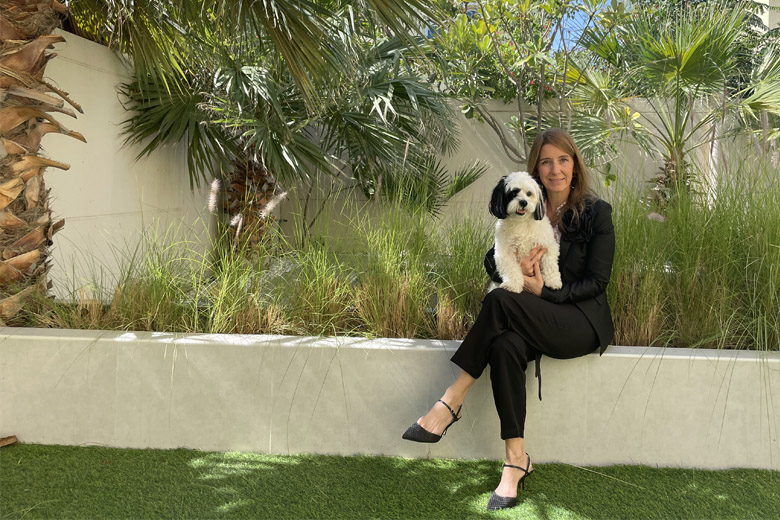
Carmella Jodrell joins The English College with a wealth of leadership experience, most recently as Head of Primary at Kent College, Dubai. Prior to coming to Dubai, Carmella was Head of Primary at a top British curriculum school in Egypt. She has also worked in the UK, Taiwan and Malaysia.
















